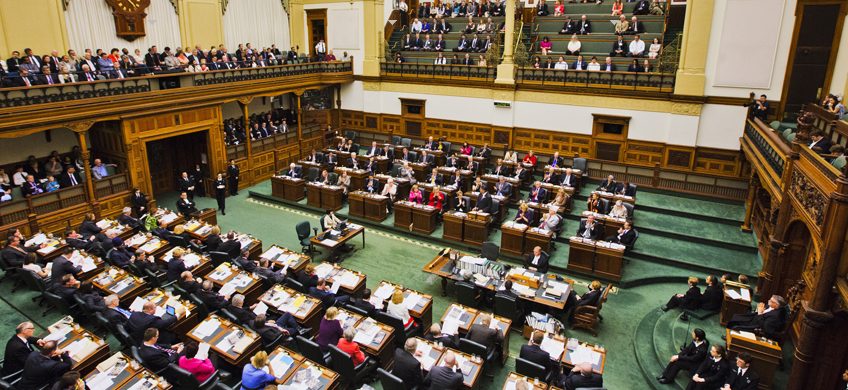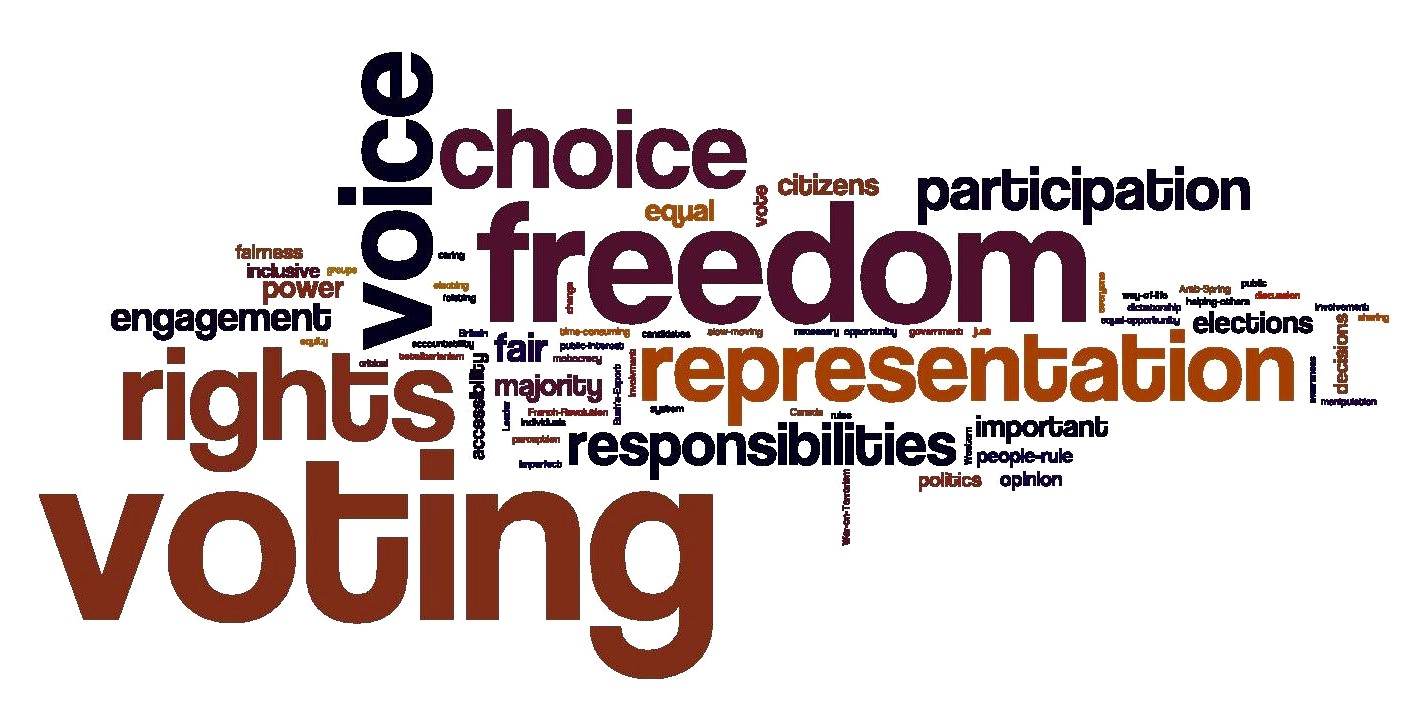Introduction
The word governance has become a buzzword and almost like a fetish in the political sciences (Levi-Faur, 2014, p. 3); (Bevir, 2012, p. 1). It has been used in all contexts, has been written about in large amounts of literature, and has been translated into all languages (Levi-Faur, 2014, pp. 3-4). Though, what is governance? To clarify the term, this essay explores the shift away from the state to governance. First, it differentiates governance from the government to clarify the misconception that they are the same. Second, it defines “governance” and looks at various meanings of it. Then, it moves to the essay’s main points: the “hollowing out of the state” and the state-centric approach of governance. Finally, it identifies some optimistic and pessimistic views on these shifts of governance. The conclusion summaries the main points made throughout the essay and ends on a short remark.
Definition of Governance
The term governance comes from the Greek term kybernan which translates to steering, piloting, or directing in English (Levi-Faur, 2014, p. 5). Some of those translations are still present in contemporary governance theories. However, the term has developed into an ambiguous, interdisciplinary research agenda (Ysa, et al., 2014, p. 9). The ambiguity of governance appeals to individual authors because it allows them to shape the meaning of it to their preferences (Peters, 2014, p. 19). For example, Fukuyama (2013, p. 3) defines governance “…as a government’s ability to make and enforce rules, and to deliver services…” while Bevir (2012, p. 1) defines governance as “…all processes of governing…”. Juxtaposing these definitions, we can see that both stand far apart from another (Ysa, et al., 2014, p. 9); (Gooding, et al., 2008, pp. 14-17). Hence, Rhodes (1997, p. 15) once implied that governance “…has too many meanings to be useful”. Though, governance as a theory reminds scholars that corporations, states, and systems are not separated from people and their actions (Bevir, 2012, p. 114). It encourages scholars to look beyond fixed institutions but also, on the shifting processes within the institutional structure (Bevir, 2012, p. 114). Hence, governance conceptualises change as we will see throughout this essay (Levi-Faur, 2014, p. 7).
Governance & Government
One has to say that governance and government are not the same (Bevir, 2012, p. 2). Government stands for political institutions which consist of a “…group of people with the authority to govern a country or state…” (Pluess, 2013, p. 494); (Anon., n.d.). Conversely, governance is what “…governments do to their citizens” but also, what companies “…do to their employees and members” (Bevir, 2012, p. 2). Furthermore, governance does not need to be used only by hierarchically organised political institutions but can also be undertaken by markets, networks, and actors (Bevir, 2012, p. 3).
Meanings of Governance
We understood what governances broadly defines and that it does not equal governments. However, what does it mean then? Levi-Four (2014, p. 8) emphasised four meanings of governance: governance as a structure, as a process, as a mechanism, and as a strategy.
Governance as a structure refers to the framework of formal and informal institutions (Levi-Faur, 2014, p. 8). It is broadly septate and includes various norms, rules, procedures, and systems (Levi-Faur, 2014, p. 8). Therefore, it allows the diverse study of governmental institutions such as political systems, inter-governmental relations, and markets (Levi-Faur, 2014, p. 8); (Cairney, 2012, pp. 70-72). Conversely, governance as a process describes the “steering” and never-ending policy-making process (Levi-Faur, 2014, p. 8). It captures the dynamic aspects of governance and describes it as ongoing steering and enhancing the process of institutional capacity (Levi-Faur, 2014, p. 9). Governance as a mechanism signifies the processes of decision-making and the tools available to govern (Levi-Faur, 2014, p. 8). Finally, governance as a strategy describes the actor’s efforts to orchestra institutions and mechanisms to shape choice and preferences (Levi-Faur, 2014, p. 8).
Wicked Problems, Shifts & Hollowing Out the State
Governance has extensive meanings and definitions because it receded from solely being about governmental institutions such as legislatures, presidencies, or electoral systems (Bevir, 2012, p. 1). As mentioned, it and can be found in other private, voluntary, and public organisations such as markets, networks, or even families (Bevir, 2012, p. 1). This is due to the ever-increasing problems states face: “wicked problems” (Gooding, et al., 2008, p. 14); (Ysa, et al., 2014, p. 10). Wicked problems are resistant and incomprehensible challenges which do not have a “good” or “bad” solution (Head & Alford, 2013, pp. 712-713). It forces states to outsource their governing authority to non-state actors in exchange for extensive knowledge, more information, and possible solutions to the wicked problems (Gooding, et al., 2008, p. 14) (Pluess, 2013, p. 494). Thus, public society seemingly remained ungoverned from the state (Gooding, et al., 2008, p. 14). Rhodes (1997, p. 17 & 100); (2007, p. 1248) calls this the “hollowing out of the state” which translates to“…the growth of governance [which] reduced the ability of core executive to act effectively, making it less reliant on a command operating code and more reliant on diplomacy”. Hence it describes the shift from state to governance and refers to “…power and authority drift[ing] away upwards…” towards intergovernmental entities, downwards to local, regional, non- governmental entities, and horizontally to private and civil authorities (Levi-Faur, 2014, p. 7 & 10).
For example, the Member States of the European Union (EU) have experienced an upward and downward shift in their governance (Lelieveldt & Princen, 2015, p. 39). Firstly, the decision-making authority is allocated to supranational or subnational levels rather than the national government (Lelieveldt & Princen, 2015, p. 39). Secondly, national governments rely on resources such as budgetary, information, and expertise from various levels of EU governments (Lelieveldt & Princen, 2015, p. 39). Thirdly, subnational governments do not need any authority from national governments to implement policies (Lelieveldt & Princen, 2015, p. 39). Consequently, federal governments do not rein policy-making, but multiple-levels do: Governance slips from the EU, past the national state, to subnational governmental entities (Lelieveldt & Princen, 2015, p. 39). This is called multi-level governance (Lelieveldt & Princen, 2015, p. 39).
Rhodes argues that such shifts leave states with no ultimate authority to steer or regulate and that the state consequently becomes de-governmentalized (Levi-Faur, 2014, p. 10). However, not all scholars agree with Rhodes’ argument that the state has been hollowed out and that it has lost its efficiency. The state-centric approach sees it instead as a shift towards new styles of governing and implementation styles which are accompanied by role modifications, definitions of political objectives, and priority setting by the state (Pluess, 2013, pp. 493-497); (Levi-Faur, 2014, p. 11).
State-centred Governance
Despite its name, the state-centric governance approach recognises that there has been a transformation in the “…organization of the state, the limitations of its policy capacities and the importance of private actors in the policy process…” (Levi-Faur, 2014, p. 11). Nevertheless, it sees the state standing at the centre of the argument – being the most critical actor in politics and policy (Levi-Faur, 2014, p. 11). Scholars of this school argue that the state increases its intervention capacity by including non-state actors in the public policy implementation (Levi-Faur, 2014, p. 12). Thus, governance is described as a mutual exchange: states surrender parts of their authoritative decision making in return for obtaining influence over, for example, economic agents (Offe, 2009, p. 554). The idea of this doctrine is that states transfer some of their steering power to actors while the state instead focuses on the rowing; meaning political agenda and priority setting (Offe, 2009, p. 555). Overall, state-centrists believe that instead of having a hollowed-out state, the state becomes leaner and consequently, can work more efficiently (Levi-Faur, 2014, p. 12).
While both approaches make comprehensible and valid argumentations, the shift away from the state to governance has general pessimistic and optimistic perspectives.
The Shift of Governance: Good or Bad?
Indeed, states become increasingly dependent on countless non-state actors because no single public or private actor has all knowledge, information, or potential solutions to the world’s wicked problems (Pluess, 2013, p. 494). However, such a shift causes a democratic dilemma because outsourcing governance translates to an effective system but also, to inclusion of non-elected actors (Pluess, 2013, p. 496). For instance, in local decision making and implementation procedures, it has fostered a “…selective inclusion of actors, unequal positions and resources of involved actors, and a lack of transparency in policy processes” (Pluess, 2013, pp. 496-497). To clarify, representative councillors are forced to hand over some of their steering power to unelected private actors (Pluess, 2013, pp. 496-497). Thus, governance shifts away from the local council and weakens its democratic administrative authority (Pluess, 2013, pp. 496-497) . Furthermore, it causes a lack of democratic legitimacy and accountability because most private actors are unelected (Pluess, 2013, pp. 496-497). Accordingly, representative councillors see their position as less influential and attempt to counteract (Pluess, 2013, pp. 496-497). They do so by extending their controlling public administrative control (Pluess, 2013, p. 498). Yet, this risks that such actions overreach and attack the transparency of decision-making and the political equality of democracy (Pluess, 2013, p. 498).
Conversely, on the supranational level, Levi-Faur (2014, pp. 12-13) has emphasised that there are some institutional gaps within the EU’s electricity and telecom regimes. Hence, he argues for a state-centred multi-level governance which brings authority back from the EU’s multiple levels to the states (Levi-Faur, 2014, pp. 12-13).
On the other hand, the optimistic view sees the increasing cooperation between states and non-state actors as beneficial for society and local democracy (Pluess, 2013, p. 497). The emphasis is thereby on the discourse and diplomacy which foster the deliberation directed toward identifying common goals (Pluess, 2013, p. 498). For example, the EU’s policy-making process tends to be deliberate, diverse, and goal-oriented instead of being forced and imprudent (Lelieveldt & Princen, 2015, p. 40). In this view, also the representative bodies do not lose necessarily their importance (Pluess, 2013, p. 497). The argument is that there only needs to be some modifications to the roles of the council (Pluess, 2013, p. 497). Therefore, the shift of governance encourages councils to take the role of defining overall political objectives and democratic functions (Pluess, 2013, p. 497).
Conclusion
What is governance? Governance is a broad research area which cannot be defined in one sentence. Thus, it might be useless. However, governance reminds scholars that political institutions are not detached from society and encourages them to explore the changing structure of institutions. Governance and governments are different. They include dissimilar underpinnings and explanations. Furthermore, governance has various meanings attached to it. These can be divided into four categories: Governance as a structure, process, mechanism, and strategy.
Wicked problems cause governance to recede from states. Subsequently, governance becomes stipitate over various levels of government and moves upwards, downwards, and sideways; as seen in the EU. While some scholars argue that these shifts cause the “hollowing out of the state”, others say that they help states to govern more efficiently. Nevertheless, these changes have advantages and disadvantages. On the one hand, the shift to non-state actors reduces democratic accountability and legitimacy. This is because power authority shifts away from the council to private, unelected actors. Particularly, councillors suffer under this because their authority swindles and rely on overreaching actions which attack democratic transparency and political equality. On the other, shifts encourage parties to synergise on a common goal while creating diplomatic discourse.
Finally, there are other shifts of governance which this essay could not explore. However, it remains interesting to see how shifts of governance emerge and impact our daily lives. Nevertheless, we need to notice them because otherwise, they might put our democracy entirely in the hands of non-state actors.
References
Anon., n.d. Definition of government. s.l.:Oxford Online Dictionary .
Bevir, M., 2012. Govenance – A Very Short Introduction. Paperback ed. Oxford: Oxford University PRess Inc.
Cairney, P., 2012. Understanding Public Policy – Theories and Issues. Paperback ed. London: Palgrave Macmillan.
Fukuyama, F., 2013. What is Govenance?. Governance, July, 26(3), pp. 347-368.
Gooding, R. E., Rein, M. & Moran, M., 2008. The Public and its Policies. In: M. Moran, M. Rein & R. E. Gooding, eds. The Oxford Handbook of Public Policy. 1 ed. New York: Oxford University Press Inc., pp. 3-38.
Head, B. W. & Alford, J., 2013. Wicked Problems: Implications for Public Policy Management. Administration & Society, 28 March, 47(6), pp. 711-739.
John, P., 2012. Analyzing Public Policy. 2 ed. New York: Routledge.
Lelieveldt, H. & Princen, S., 2015. The Politics of the European Union. 2 ed. Padstow(Cornwall): Cambridge University Press.
Levi-Faur, D., 2014. The Oxford Handbook of Goverance. Paperback ed. New York: Oxford University Press.
Offe, C., 2009. Governnce: An “Empty Signifier”. Constellations, 25 November, 16(4), pp. 550-562.
Peters, G. B., 2014. Goverance as Political Theory. In: D. Levi-Faur, ed. The Oxford Handbook of Governance. New York: Oxford University Press Inc., pp. 19-32.
Pluess, L., 2013. Steering, Not Rowing? An Analysis of the Political Influence, the Role Perceptions, and the Behaviour of Swiss City Councillors in Different Urban Governance Context. Urban Affairs Review, 13 October, 50(4), pp. 490-520.
Rhodes, R. A. W., 1997. Understanding Govenance – Policy Networks, Governace, Reflexivity and Accountability. 1 ed. Bristol: Political Studies Association.
Rhodes, R. A. W., 1997. Understanding Govrnance – Policy Networks, Goverance, Reflexivity and Accountability. Hardcover ed. Bristol: Open University Press.
Rhodes, R. W. A., 2007. Understanding Gvernance: Ten Years On. Sage Journals, 01 August, 28(8), pp. 1243-1264.
Ysa, T., Singleton, N. & McGregor, S., 2014. What is Governnce?. In: P. Anderson, G. Buwhringer & J. Colom, eds. Reframing addiction: policies, processes and pressures. s.l.:The ALICE RAP Project, pp. 9-17.





